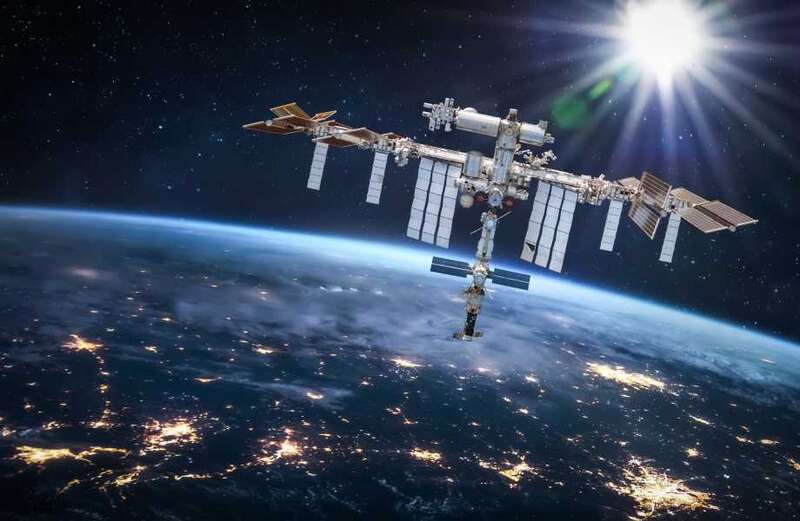A NEW out-of-this-world 'superbug' has been discovered living aboard the International Space Station.
Despite the highly controlled environment on the ISS, a bug hitched a ride to space, where scientists were able to observe the mutating pathogen over the course of two years.



Scientists now claim the newly discovered multi drug resistant super bug 'ISS Enterobacter bugandenis' is wholly different to its Earth counterpart.
The bug, known to infect the respiratory system, could pose a risk to the crew onboard.
According to a study published in the scientific journal 'Microbiome'. scientists believe the strain evolved to become more potent in the closed environment of the ISS.
 Charming UK village is 'UFO hotspot' with 'NASA scientists showing interest'
Charming UK village is 'UFO hotspot' with 'NASA scientists showing interest'
Over time scientists isolated 13 strands of the bug, where they carried out a comprehensive study.
According to the report, scientists said the found merited the need for "more robust preventative measures."
The report said: “The singular nature of the stresses of the space environment, distinct from any on Earth, could be driving these genomic adaptations...
"The implications of these findings are twofold. Firstly, they shed light on microbial behaviour, adaptation, and evolution in extreme, isolated environments.
"Secondly, they underscore the need for robust preventive measures, ensuring the health and safety of astronauts by mitigating risks associated with potential pathogenic threats."
Senior research scientist at NASA's jet propulsion laboratory Dr Kasthuri Venkateswaran said the research would help uncover how certain benign microorganisms adapt and survive in "unfavourable conditions",
He said: "The knowledge gained from this study would shed light on microbial behaviour, adaptation, and evolution in extreme, isolated environments that allow in designing novel countermeasure strategies to eradicate opportunistic pathogens."
While the germs and bacteria find their way in to space, they aren't making their way down.
NASA and other space agencies take great care to ensure that no Earthly life forms tag along for the ride.
A statement from NASA said: "Closed human-built environments, such as the ISS, are unique areas that provide an extreme environment subject to micro gravity, radiation, and elevated carbon dioxide levels.
 Astronomer leads hunt for Northern Lights 'sound' rarely heard in the aurora
Astronomer leads hunt for Northern Lights 'sound' rarely heard in the aurora
"Any microorganisms introduced to these areas must adapt to thrive.
"By delving into microbial dynamics in extreme environments, this research opens doors to effective preventative measures for astronaut health."
Last year it was reported that astronauts on the ISS may have been inhaling nanoplastic particles.
A study revealed that the air in International Space Station (ISS) was dirtier than the floor of the average UK home.
While the air is constantly recirculated and CO2 is removed, the structure is getting old and scientists are unsure to what degree the filtration system can remove certain chemicals.
The ISS has been in Earth's orbit for 24 years, and hundreds ofastronauts have passed through the space hub in that time, bringing with them a host of personal items for their sometimes months-long stays.
The so-called 'space dust' included polybrominated diphenyl ethers (PBDEs), hexabromocyclododecane (HBCDD), ‘novel’ brominated flame retardants (BFRs), organophosphate esters (OPEs), polycyclic aromatic hydrocarbons (PAH), perfluoroalkyl substances (PFAS), and polychlorinated biphenyls (PCBs).

































